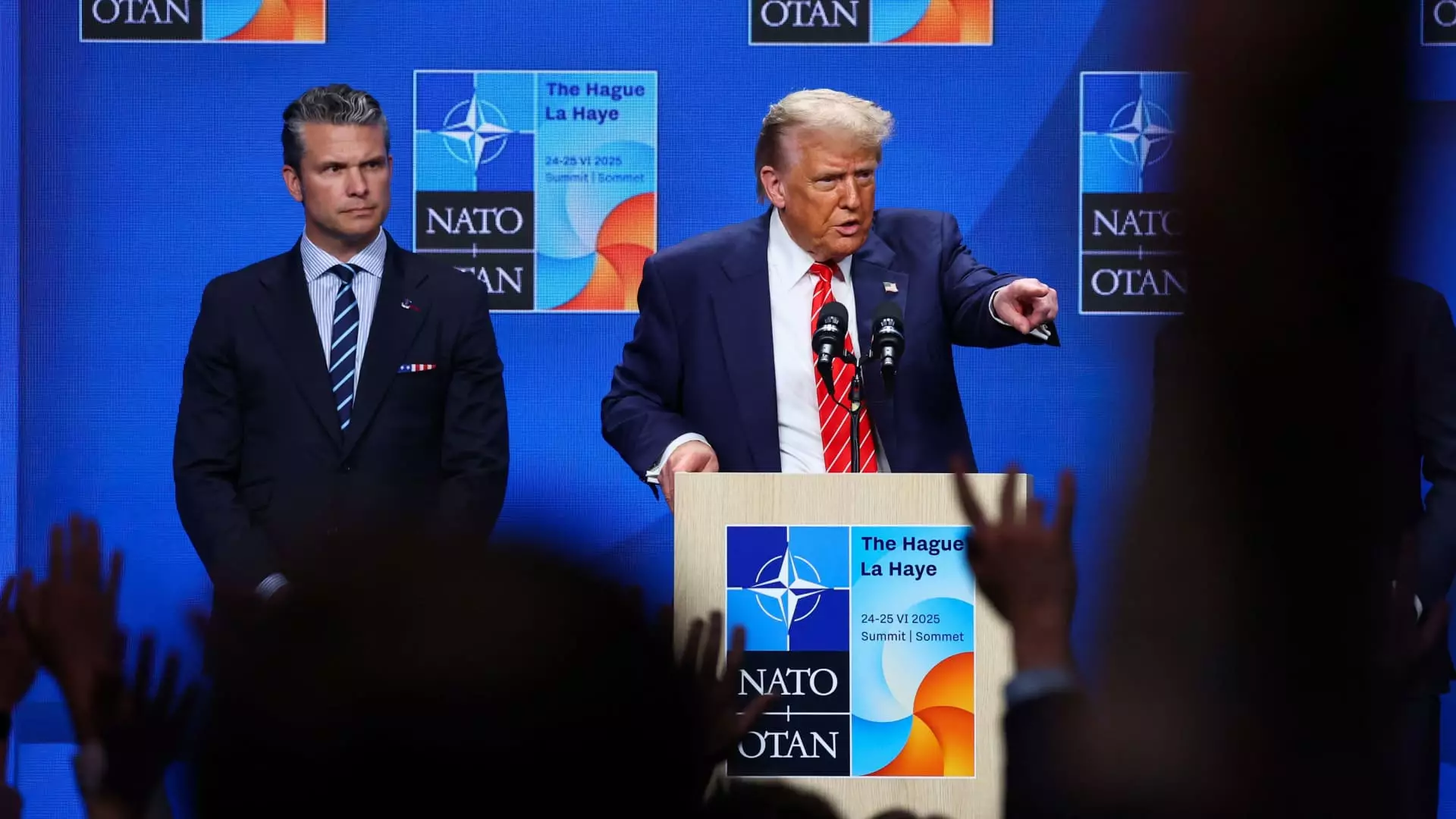In a recent news conference, President Donald Trump confidently asserted that U.S. airstrikes had entirely annihilated Iran’s nuclear ambitions, particularly at the Fordo site. This notion of “total obliteration” is not merely overzealous; it is a dangerous illusion that feeds into a larger narrative of triumphalism often espoused by the Trump administration. However, a preliminary intelligence assessment from U.S. defense analysts paints a more complicated picture, suggesting the strikes merely postponed Iran’s nuclear program, not obliterated it. This discrepancy raises important questions about the integrity of the information being presented to the American public, leading us to wonder: how do you reconcile a leader’s bold proclamations with the nuanced realities of international affairs?
Intelligence and Accountability
The dissonance between Trump’s fiery rhetoric and the intelligence community’s findings is troubling. While Trump displayed a notable brashness in disavowing the report, likening it to an incomplete picture, it highlights a grave issue within the apparatus of governance. The fabric of democracy rests on informed decision-making, rather than bombastic claims that may serve political ends in the moment. Trump’s insistence that the Intelligence Assessment is flawed seems not simply a matter of interpretation, but rather an intentional dismissal of a reality he prefers to ignore. With the Pentagon launching a leak investigation into the report’s dissemination, one must wonder if the real issue is not just about the report itself, but about a culture of accountability within the executive branch.
Deflection and Denial
Under the guise of nationalism, the administration has pushed back aggressively against any implication that might suggest a miscalculation or inadequacy in their strategy. White House Press Secretary Karoline Leavitt called the intelligence report “flat-out wrong” and dismissed the anonymous sources as “low-level losers.” Such language is emblematic of a pattern wherein accountability is shifted towards critics—those who dare to challenge the president’s assertions are relegated to the margins as mere detractors. This strategy may provide temporary solace to the administration, but it erodes the public trust that is vital for a healthy democracy.
Beyond verbal combat, there is a troubling inclination within this administration to vilify those who dare to provide an unfavorable assessment. Defense Secretary Pete Hegseth’s remark, implying that doubting the strikes’ efficacy is tantamount to treason against the administration, reveals deeper dynamics at play: a culture of silence that demands loyalty above all else. In this environment, where dissent is viewed as disloyalty, democratic discourse is stunted, and the pursuit of truth becomes a secondary concern.
A Strategic Crossroads
The geopolitical implications of these airstrikes cannot be overstated. As the tensions in the Middle East continue to unfold, we see the U.S.’s strategies being crafted through the lens of bravado rather than careful diplomacy. By overstating the effectiveness of the strikes, the administration risks provoking further conflict, jeopardizing not just American lives but stability in the broader region. The simplistic narrative of “good vs. evil” does not accurately reflect the complex chess game being played on the global stage; instead, it further entrenches ideological divisions. This is a pivotal moment for American leadership, and it requires a commitment to genuine engagement rather than bluster disguised as strength.
The Dangers of Fabricated Success
Ultimately, the promise of “absolute victory” over hostile nations such as Iran can be as intoxicating as it is misleading. The reality is that military actions rarely produce straightforward results. The fallout from the airstrikes might indeed delay Iran’s nuclear program, but Trump’s penchant for exaggeration overlooks a critical truth—military might does not equate to diplomatic success. As we move forward, the necessity for a more nuanced approach remains paramount. Acknowledging the limitations of airstrikes and engaging in pragmatic dialogue could yield more substantial outcomes than a bravado-laden aesthetic of triumph. The stakes are high, and as history has shown, the road paved with hubris often leads to a reckoning far more severe than the conflict attempted to be avoided.


Leave a Reply